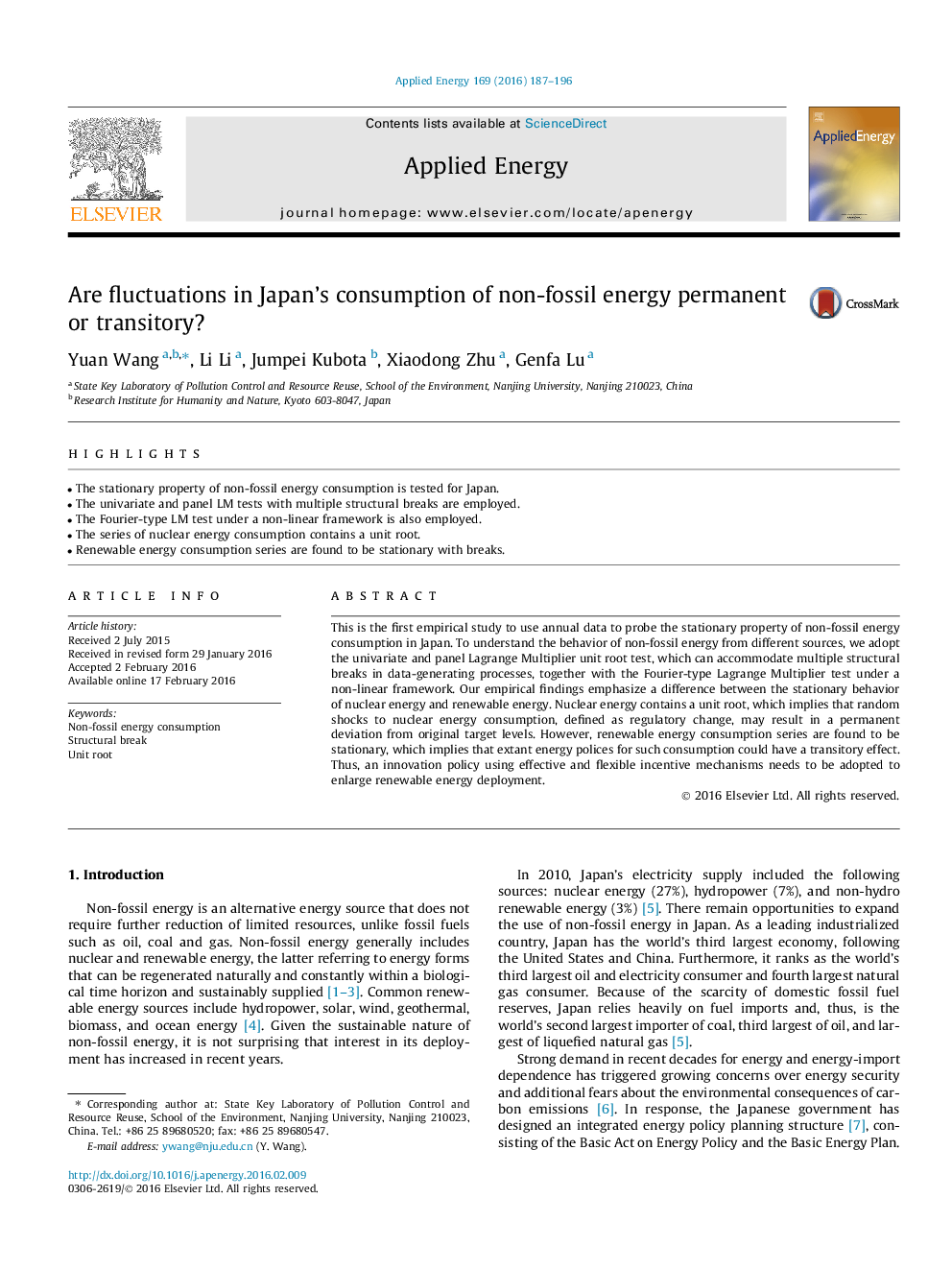| Article ID | Journal | Published Year | Pages | File Type |
|---|---|---|---|---|
| 6683464 | Applied Energy | 2016 | 10 Pages |
Abstract
This is the first empirical study to use annual data to probe the stationary property of non-fossil energy consumption in Japan. To understand the behavior of non-fossil energy from different sources, we adopt the univariate and panel Lagrange Multiplier unit root test, which can accommodate multiple structural breaks in data-generating processes, together with the Fourier-type Lagrange Multiplier test under a non-linear framework. Our empirical findings emphasize a difference between the stationary behavior of nuclear energy and renewable energy. Nuclear energy contains a unit root, which implies that random shocks to nuclear energy consumption, defined as regulatory change, may result in a permanent deviation from original target levels. However, renewable energy consumption series are found to be stationary, which implies that extant energy polices for such consumption could have a transitory effect. Thus, an innovation policy using effective and flexible incentive mechanisms needs to be adopted to enlarge renewable energy deployment.
Keywords
Related Topics
Physical Sciences and Engineering
Energy
Energy Engineering and Power Technology
Authors
Yuan Wang, Li Li, Jumpei Kubota, Xiaodong Zhu, Genfa Lu,
